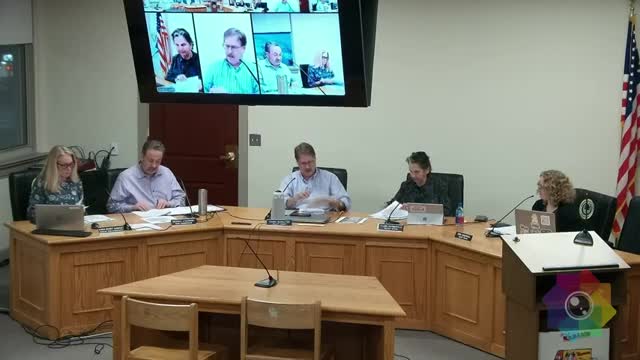Select Board finalizes town meeting warrant; discusses senior tax-exemption special act and town clerk appointment method
Get AI-powered insights, summaries, and transcripts
Subscribe
Summary
The Select Board approved changes to the May 5 annual town meeting warrant, including revisions to a proposed special act to allow a senior property tax exemption for school building debt and an option to change the town clerk from elected to appointed via charter amendment.
The Millis Select Board on April 15 reviewed and approved final edits to the May 5 annual town meeting warrant, and discussed several substantive warrant articles including a proposed special act (Article 12) that would create a senior property tax exemption tied to school building debt, and Article 13 proposing a change in the method of selecting the town clerk from elected to appointed via charter amendment.
Town staff recommended three amendments to Article 12 intended to clarify timing, asset limits, and how the exempted amount would be spread among taxpayers. The changes are: replacing wording so the exemption applies to projects "which borrowing is undertaken" (to cover projects where bonds are issued after a special act is approved); adding a sentence to section 2 that ties determinations of "excessive assets" to asset limits used by the Commonwealth for affordable housing eligibility (to make the standard less subjective); and changing section 3 so that the total amount exempted by the special act would be allocated proportionally across all taxpayers rather than only residential taxpayers.
John Loire of Pleasant Street, who spoke during the discussion, sought clarification on scope and mechanics. Loire asked whether the measure would apply to future school projects requiring a debt exclusion (it would) and whether asset‑test thresholds would mirror the state circuit‐breaker guidelines (staff said the draft ties the assessors’ standard to the state’s affordable‑housing asset limits rather than attempting to embed a numeric threshold in the special act). Town staff and the principal assessor said application would require an annual submission and that the Department of Revenue must certify the town tax rate before exemptions would be granted.
Staff provided estimates and context: as of 2022, 258 taxpayers were eligible for the state senior circuit breaker program; the principal assessor estimated she would be surprised if more than about 100 taxpayers would meet the additional qualifications to apply under the proposed special act if it were enacted. Town staff noted the financial impact on other taxpayers would likely be small (examples discussed by staff indicated dollar amounts in the low tens of dollars per taxpayer under illustrative scenarios), but the actual effect depends on final borrowing, number of qualifying applicants, and timing.
On Article 13, staff proposed using the town’s charter amendment process rather than seeking a special act at the Legislature because the charter route would allow a change to take effect within 30 days after a ballot vote if town meeting approves the charter change by a two‑thirds vote and voters then approve the ballot question. The Select Board indicated that following the town charter process would likely be more efficient than pursuing a special act through the Legislature.
The board voted to open and then close and sign the warrant; those procedural votes were unanimous. The board also agreed to remove one parcel from Article 15 (a large, landlocked parcel in Brandywine Terrace) for further study.
